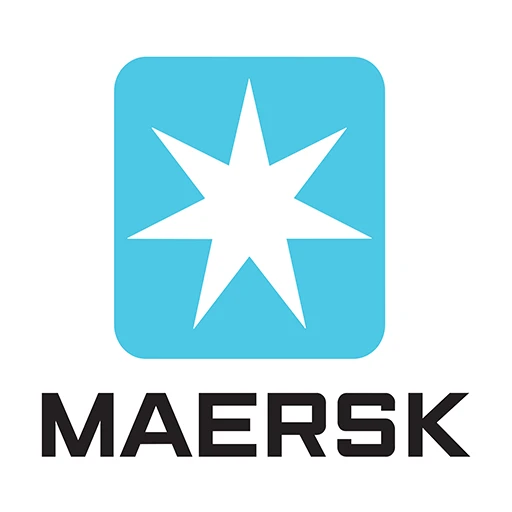Exploring the Legacy of A. P. Møller-Mærsk: From Shipping Giant to Global Conglomerate
In the dynamic landscape of international trade and commerce, few names have left as indelible a mark as A. P. Møller-Mærsk. This Danish conglomerate, born from humble beginnings, has transformed into a global powerhouse with a significant impact on various industries. From maritime shipping to energy, A. P. Møller-Mærsk's journey is a tale of ambition, innovation, and diversification. Let's delve into the captivating story of this influential company.
1. Introduction
A. P. Møller-Mærsk, often simply referred to as Maersk, is a Danish conglomerate that has played a pivotal role in shaping the modern maritime and logistics landscape. Founded in 1904 by Arnold Peter Møller, the company's journey began with a single steamship, marking the inception of a legacy that would span over a century.
2. Early Beginnings and Maritime Ventures
Møller's entrepreneurial spirit led him to embark on maritime ventures even before the formal establishment of the company. He recognized the potential of maritime trade in facilitating global commerce and establishing connections between nations.
3. The Birth of A. P. Møller-Mærsk
In 1904, Møller's vision culminated in the creation of A. P. Møller-Mærsk. The company's early years were characterized by determination and innovation, as it navigated through the challenges of World War I and economic fluctuations.
4. Pioneering Containerization: Revolutionizing Shipping
A pivotal moment in Maersk's history was its role in the development of containerization. This revolutionary concept transformed the shipping industry by standardizing cargo containers, leading to more efficient loading, unloading, and transportation of goods.
5. Diversification and Global Expansion
Maersk's influence extended beyond shipping as it diversified into other sectors, including energy and logistics. Strategic acquisitions and partnerships facilitated the company's expansion into new markets and geographies.
6. Navigating Challenges: From Financial Crises to Environmental Concerns
The conglomerate faced its share of challenges, including financial crises and market fluctuations. Additionally, growing environmental concerns prompted Maersk to explore sustainable practices and reduce its carbon footprint.
7. A Sustainable Future: Commitment to Environmental Responsibility
Maersk's commitment to sustainability led to ambitious goals, such as becoming carbon-neutral by 2050. The company's efforts to adopt cleaner technologies and enhance operational efficiency exemplify its dedication to environmental responsibility.
8. Embracing Digital Transformation: The Role of Technology
In a rapidly evolving digital landscape, Maersk embraced technology to streamline operations, enhance customer experiences, and optimize supply chains. This embrace of digital transformation has positioned the company for continued success.
9. Humanitarian Initiatives: A. P. Møller Foundation
Beyond its corporate endeavors, Maersk established the A. P. Møller Foundation, contributing to various humanitarian and social initiatives globally. This philanthropic arm reflects the company's commitment to making a positive impact beyond business.
10. Leadership and Corporate Culture
Central to Maersk's success is its leadership and corporate culture. The company values innovation, inclusivity, and a collaborative approach, fostering an environment conducive to growth and adaptability.
11. A. P. Møller-Mærsk's Impact on Global Trade
The conglomerate's far-reaching influence has significantly shaped global trade patterns, connecting economies, and facilitating the exchange of goods across continents.
12. Future Prospects and Continued Evolution
As Maersk continues to evolve, its future prospects remain promising. The company's dedication to innovation, sustainability, and responsible business practices positions it for continued relevance and success.
13. Conclusion
The journey of A. P. Møller-Mærsk is a testament to the power of vision, resilience, and adaptability. From its humble origins, the conglomerate has grown into a multifaceted entity that transcends industries and borders.
14. FAQs
What does A. P. Møller-Mærsk stand for?
A. P. Møller-Mærsk is the name of a Danish conglomerate founded by Arnold Peter Møller. It encompasses various businesses, including shipping, logistics, and energy.
How did Maersk contribute to containerization?
Maersk played a significant role in the development of containerization by embracing standardized cargo containers. This innovation revolutionized the shipping industry, making the loading, unloading, and transportation of goods more efficient and cost-effective.
What are Maersk's sustainability goals?
Maersk has ambitious sustainability goals, aiming to become carbon-neutral by 2050. The company is actively implementing cleaner technologies, reducing emissions, and enhancing operational efficiency to achieve these goals.
How does technology drive Maersk's operations?
Technology plays a crucial role in Maersk's operations, optimizing supply chains, enhancing customer experiences, and improving overall efficiency. The company employs digital solutions to streamline processes and adapt to the ever-changing business landscape.
What philanthropic initiatives does the A. P. Møller Foundation support?
The A. P. Møller Foundation, established by Maersk, supports a range of humanitarian and social initiatives globally. These initiatives focus on education, healthcare, cultural preservation, and other areas aimed at making a positive impact on society.
